Dr. Dre, “Deez Nuts,” The Chronic
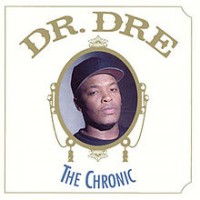 Damn. The sample after the phone call at the beginning of this song with the dude with the weird voice talking about nuts makes me feel scared. I honestly wish I was black. I just sat here listening for a full two minutes of the song before I wrote that. I don’t think it’s bad to say that. People seem to get mad if you say things about things like that. My friend Ben told me the other day that he realized that all of my characters I’ve ever written are black. I want to believe that. This song is part of the album that made me start drinking gin when I finally started drinking, which wasn’t until I was 26, or maybe 27. I told everyone who drank that they were stupid for it a lot I think. Then I was just doing it. I wish I was the keyboard in this song; actually I wish that the most.
Damn. The sample after the phone call at the beginning of this song with the dude with the weird voice talking about nuts makes me feel scared. I honestly wish I was black. I just sat here listening for a full two minutes of the song before I wrote that. I don’t think it’s bad to say that. People seem to get mad if you say things about things like that. My friend Ben told me the other day that he realized that all of my characters I’ve ever written are black. I want to believe that. This song is part of the album that made me start drinking gin when I finally started drinking, which wasn’t until I was 26, or maybe 27. I told everyone who drank that they were stupid for it a lot I think. Then I was just doing it. I wish I was the keyboard in this song; actually I wish that the most.
Mogwai, “You Don’t Know Jesus,” Rock Action
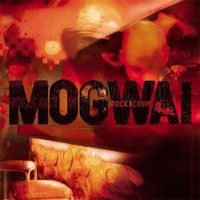 That’s a good title for a song. I don’t even care what the song does after the title. I think more people should be attacked for things about god but indirectly like a song title that kids who chill in rooms probably put on and laugh about. Maybe this shitty ass band laughs about it too. I have to check to see how long this song is because I don’t know if I can take guitars for this long. Fuck, it’s 8 minutes and three seconds. That’s the worst. No song with guitars in it should be that long. Guy Piciotto has that songs where he says he realizes that he hates the sound of guitars, and it seems like that’s like me hating books and words. Had a conversation about that last night, like would I hate teeth if I were a dentist, is that my personality, or is it more situational. God, fuck this song. This is the most annoying thing I’ve ever heard with all this swirling treble. Who decided Mogwai was okay to think was good. It seems like they were a band that could have just existed in their house playing shitty shows in whatever city they are from forever and self releasing bullshit for whoever forever and never been something people talk about except a guy who works at a label picked them up and then they became whatever they are. Things like that happen. I wish I was listening to “Deez Nuts” again instead of this song…. Let me slow down a second. Maybe things can be good… Just looked, three more minutes left, and noticed this album is called “Rock Action.” I forgot about that, fuck this shithole song. No really, fuck these guys.
That’s a good title for a song. I don’t even care what the song does after the title. I think more people should be attacked for things about god but indirectly like a song title that kids who chill in rooms probably put on and laugh about. Maybe this shitty ass band laughs about it too. I have to check to see how long this song is because I don’t know if I can take guitars for this long. Fuck, it’s 8 minutes and three seconds. That’s the worst. No song with guitars in it should be that long. Guy Piciotto has that songs where he says he realizes that he hates the sound of guitars, and it seems like that’s like me hating books and words. Had a conversation about that last night, like would I hate teeth if I were a dentist, is that my personality, or is it more situational. God, fuck this song. This is the most annoying thing I’ve ever heard with all this swirling treble. Who decided Mogwai was okay to think was good. It seems like they were a band that could have just existed in their house playing shitty shows in whatever city they are from forever and self releasing bullshit for whoever forever and never been something people talk about except a guy who works at a label picked them up and then they became whatever they are. Things like that happen. I wish I was listening to “Deez Nuts” again instead of this song…. Let me slow down a second. Maybe things can be good… Just looked, three more minutes left, and noticed this album is called “Rock Action.” I forgot about that, fuck this shithole song. No really, fuck these guys.
Brian Wilson, “Our Prayer/Gee,” Smile
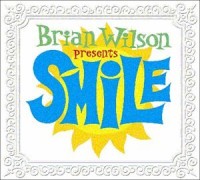 They are harmonizing. They always do that. One of the first records I ever had was “Endless Summer.” My mom got it for me at a garage sale I think. I liked looking at the cover of it a lot and playing the music. I don’t think I understood the music but I understood that my mom bought it for me and that meant more than other things. I’m older now. I am scared of songs that make me remember things because then they can be weapons. They are going “bom bom bom a bom” or whatever. That seems not such a weapon, but maybe more then is one cuz of that.
They are harmonizing. They always do that. One of the first records I ever had was “Endless Summer.” My mom got it for me at a garage sale I think. I liked looking at the cover of it a lot and playing the music. I don’t think I understood the music but I understood that my mom bought it for me and that meant more than other things. I’m older now. I am scared of songs that make me remember things because then they can be weapons. They are going “bom bom bom a bom” or whatever. That seems not such a weapon, but maybe more then is one cuz of that.
Wire, “Let’s Panic Later,” 154
 When I had a, uh, class at Georgia Tech for web design we had to build a website to show we could do certain things and I made one about how much I hated British music. That’s not so true anymore. I wish I had a pretzel as big as me that I could lay against and hump and eat at the same time. Seems like these guys are “experimenting” on this song, like they said “hey let’s experiment” and like went in the booth and were looking at each other all weird through the glass like surprised what they were doing and yet intense at the same time so the performance seemed legitimate. I wonder if they are proud of this still. Panicking now seems better than later.
When I had a, uh, class at Georgia Tech for web design we had to build a website to show we could do certain things and I made one about how much I hated British music. That’s not so true anymore. I wish I had a pretzel as big as me that I could lay against and hump and eat at the same time. Seems like these guys are “experimenting” on this song, like they said “hey let’s experiment” and like went in the booth and were looking at each other all weird through the glass like surprised what they were doing and yet intense at the same time so the performance seemed legitimate. I wonder if they are proud of this still. Panicking now seems better than later.
The Melvins, “Goose Freight Train,” Stoner Witch
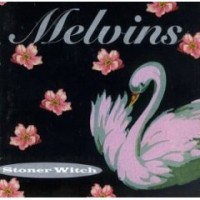 I saw these guys a few times, they were wearing cloaks that looked like dresses. It’s really quiet here tonight in my house except for that I’m playing music. I used to think that music could keep you safe, like if you were playing it it filled the air and if people were outside your house they wouldn’t be able to move through the silence to hurt you because the silence made it impossible for them to come through the same way. I like the name “Goose Freight Train” but I don’t know what it has to do with this song. I see a big goose going on a track through the night kind of smiling and brighter than everything around it. This song reminds me of mowing the lawn. Couldn’t help but just wondering after I paused between that last sentence and thinking about what would be next if I am stupid. I’m probably stupider now than I was three years ago but smarter than I was five years ago. Does aging work like that? I feel like I can feel me aging with this guitar line, like it is counting time in a nonmusical way and more in the way people actually age. I don’t know how I haven’t misspelled anything in this whole paragraph while typing, only the word “Melvins” is underlined in red. I want to get licked in between the eyes by
I saw these guys a few times, they were wearing cloaks that looked like dresses. It’s really quiet here tonight in my house except for that I’m playing music. I used to think that music could keep you safe, like if you were playing it it filled the air and if people were outside your house they wouldn’t be able to move through the silence to hurt you because the silence made it impossible for them to come through the same way. I like the name “Goose Freight Train” but I don’t know what it has to do with this song. I see a big goose going on a track through the night kind of smiling and brighter than everything around it. This song reminds me of mowing the lawn. Couldn’t help but just wondering after I paused between that last sentence and thinking about what would be next if I am stupid. I’m probably stupider now than I was three years ago but smarter than I was five years ago. Does aging work like that? I feel like I can feel me aging with this guitar line, like it is counting time in a nonmusical way and more in the way people actually age. I don’t know how I haven’t misspelled anything in this whole paragraph while typing, only the word “Melvins” is underlined in red. I want to get licked in between the eyes by
The Minutemen, “Spillage,” Double Nickels on the Dime
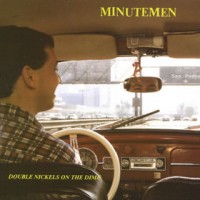 I mean, all their songs sound the same. It’s a cool song, the one song, but it’s all of them. Gian just texted me, “I like that dude. I like his sense of humor.” Trying to remember who he was talking about. D. Boon and Cliff Burton probably chill. My TV seems to be watching me.
I mean, all their songs sound the same. It’s a cool song, the one song, but it’s all of them. Gian just texted me, “I like that dude. I like his sense of humor.” Trying to remember who he was talking about. D. Boon and Cliff Burton probably chill. My TV seems to be watching me.
Young Jeezy, “Time,” Trap or Die 2
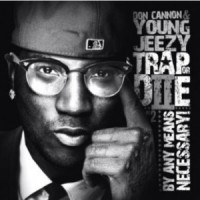 Man his voice is super all tricked out on this song, like he’s over enunciating his southern accent. It works pretty good like when Project Pat does that. There are people singing in the background here, makes me feel like I want to walk out of the house to the church across the street and walk inside it and stand there and see if I can see something. I actually don’t think I’ve ever heard this Jeezy song somehow. My computer is full of a lot of songs I’ve never heard and are just sitting there inside this machine. People worked on them and did things to make them and they are there. Ie9f=0eif0uer-ufadohf a slofjalksjd flkja sld. He is saying “tie-um” when he says “time” and that’s confusing. I feel ugly, but not physically really, just in general. I have eaten tortilla chips for dinner every night this week. Looked at the top of the screen and it says “Chrome” which feels better to see than “Safari.” What is happening to everyone. Stop saying “tie-um,” dude, it feels messed up. I want to go on a really long walk that feels like a short walk at the end of it and I just sit down there wherever seems like the end of the walk.
Man his voice is super all tricked out on this song, like he’s over enunciating his southern accent. It works pretty good like when Project Pat does that. There are people singing in the background here, makes me feel like I want to walk out of the house to the church across the street and walk inside it and stand there and see if I can see something. I actually don’t think I’ve ever heard this Jeezy song somehow. My computer is full of a lot of songs I’ve never heard and are just sitting there inside this machine. People worked on them and did things to make them and they are there. Ie9f=0eif0uer-ufadohf a slofjalksjd flkja sld. He is saying “tie-um” when he says “time” and that’s confusing. I feel ugly, but not physically really, just in general. I have eaten tortilla chips for dinner every night this week. Looked at the top of the screen and it says “Chrome” which feels better to see than “Safari.” What is happening to everyone. Stop saying “tie-um,” dude, it feels messed up. I want to go on a really long walk that feels like a short walk at the end of it and I just sit down there wherever seems like the end of the walk.

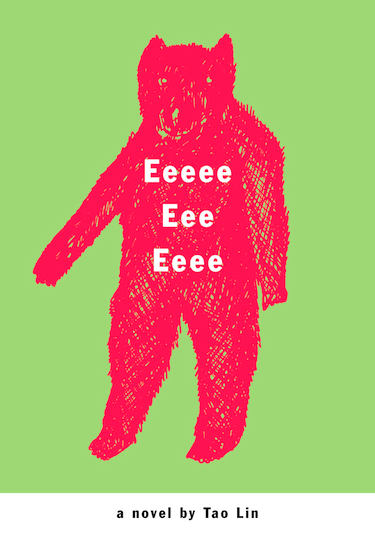
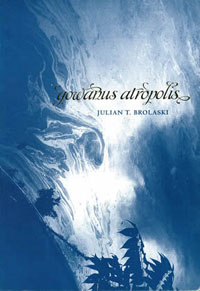

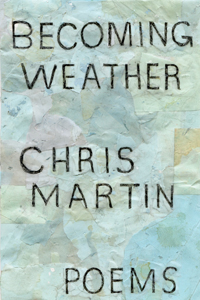

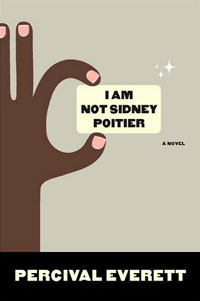
 Damn. The sample after the phone call at the beginning of this song with the dude with the weird voice talking about nuts makes me feel scared. I honestly wish I was black. I just sat here listening for a full two minutes of the song before I wrote that. I don’t think it’s bad to say that. People seem to get mad if you say things about things like that. My friend Ben told me the other day that he realized that all of my characters I’ve ever written are black. I want to believe that. This song is part of the album that made me start drinking gin when I finally started drinking, which wasn’t until I was 26, or maybe 27. I told everyone who drank that they were stupid for it a lot I think. Then I was just doing it. I wish I was the keyboard in this song; actually I wish that the most.
Damn. The sample after the phone call at the beginning of this song with the dude with the weird voice talking about nuts makes me feel scared. I honestly wish I was black. I just sat here listening for a full two minutes of the song before I wrote that. I don’t think it’s bad to say that. People seem to get mad if you say things about things like that. My friend Ben told me the other day that he realized that all of my characters I’ve ever written are black. I want to believe that. This song is part of the album that made me start drinking gin when I finally started drinking, which wasn’t until I was 26, or maybe 27. I told everyone who drank that they were stupid for it a lot I think. Then I was just doing it. I wish I was the keyboard in this song; actually I wish that the most. That’s a good title for a song. I don’t even care what the song does after the title. I think more people should be attacked for things about god but indirectly like a song title that kids who chill in rooms probably put on and laugh about. Maybe this shitty ass band laughs about it too. I have to check to see how long this song is because I don’t know if I can take guitars for this long. Fuck, it’s 8 minutes and three seconds. That’s the worst. No song with guitars in it should be that long. Guy Piciotto has that songs where he says he realizes that he hates the sound of guitars, and it seems like that’s like me hating books and words. Had a conversation about that last night, like would I hate teeth if I were a dentist, is that my personality, or is it more situational. God, fuck this song. This is the most annoying thing I’ve ever heard with all this swirling treble. Who decided Mogwai was okay to think was good. It seems like they were a band that could have just existed in their house playing shitty shows in whatever city they are from forever and self releasing bullshit for whoever forever and never been something people talk about except a guy who works at a label picked them up and then they became whatever they are. Things like that happen. I wish I was listening to “Deez Nuts” again instead of this song…. Let me slow down a second. Maybe things can be good… Just looked, three more minutes left, and noticed this album is called “Rock Action.” I forgot about that, fuck this shithole song. No really, fuck these guys.
That’s a good title for a song. I don’t even care what the song does after the title. I think more people should be attacked for things about god but indirectly like a song title that kids who chill in rooms probably put on and laugh about. Maybe this shitty ass band laughs about it too. I have to check to see how long this song is because I don’t know if I can take guitars for this long. Fuck, it’s 8 minutes and three seconds. That’s the worst. No song with guitars in it should be that long. Guy Piciotto has that songs where he says he realizes that he hates the sound of guitars, and it seems like that’s like me hating books and words. Had a conversation about that last night, like would I hate teeth if I were a dentist, is that my personality, or is it more situational. God, fuck this song. This is the most annoying thing I’ve ever heard with all this swirling treble. Who decided Mogwai was okay to think was good. It seems like they were a band that could have just existed in their house playing shitty shows in whatever city they are from forever and self releasing bullshit for whoever forever and never been something people talk about except a guy who works at a label picked them up and then they became whatever they are. Things like that happen. I wish I was listening to “Deez Nuts” again instead of this song…. Let me slow down a second. Maybe things can be good… Just looked, three more minutes left, and noticed this album is called “Rock Action.” I forgot about that, fuck this shithole song. No really, fuck these guys. They are harmonizing. They always do that. One of the first records I ever had was “Endless Summer.” My mom got it for me at a garage sale I think. I liked looking at the cover of it a lot and playing the music. I don’t think I understood the music but I understood that my mom bought it for me and that meant more than other things. I’m older now. I am scared of songs that make me remember things because then they can be weapons. They are going “bom bom bom a bom” or whatever. That seems not such a weapon, but maybe more then is one cuz of that.
They are harmonizing. They always do that. One of the first records I ever had was “Endless Summer.” My mom got it for me at a garage sale I think. I liked looking at the cover of it a lot and playing the music. I don’t think I understood the music but I understood that my mom bought it for me and that meant more than other things. I’m older now. I am scared of songs that make me remember things because then they can be weapons. They are going “bom bom bom a bom” or whatever. That seems not such a weapon, but maybe more then is one cuz of that. When I had a, uh, class at Georgia Tech for web design we had to build a website to show we could do certain things and I made one about how much I hated British music. That’s not so true anymore. I wish I had a pretzel as big as me that I could lay against and hump and eat at the same time. Seems like these guys are “experimenting” on this song, like they said “hey let’s experiment” and like went in the booth and were looking at each other all weird through the glass like surprised what they were doing and yet intense at the same time so the performance seemed legitimate. I wonder if they are proud of this still. Panicking now seems better than later.
When I had a, uh, class at Georgia Tech for web design we had to build a website to show we could do certain things and I made one about how much I hated British music. That’s not so true anymore. I wish I had a pretzel as big as me that I could lay against and hump and eat at the same time. Seems like these guys are “experimenting” on this song, like they said “hey let’s experiment” and like went in the booth and were looking at each other all weird through the glass like surprised what they were doing and yet intense at the same time so the performance seemed legitimate. I wonder if they are proud of this still. Panicking now seems better than later. I saw these guys a few times, they were wearing cloaks that looked like dresses. It’s really quiet here tonight in my house except for that I’m playing music. I used to think that music could keep you safe, like if you were playing it it filled the air and if people were outside your house they wouldn’t be able to move through the silence to hurt you because the silence made it impossible for them to come through the same way. I like the name “Goose Freight Train” but I don’t know what it has to do with this song. I see a big goose going on a track through the night kind of smiling and brighter than everything around it. This song reminds me of mowing the lawn. Couldn’t help but just wondering after I paused between that last sentence and thinking about what would be next if I am stupid. I’m probably stupider now than I was three years ago but smarter than I was five years ago. Does aging work like that? I feel like I can feel me aging with this guitar line, like it is counting time in a nonmusical way and more in the way people actually age. I don’t know how I haven’t misspelled anything in this whole paragraph while typing, only the word “Melvins” is underlined in red. I want to get licked in between the eyes by
I saw these guys a few times, they were wearing cloaks that looked like dresses. It’s really quiet here tonight in my house except for that I’m playing music. I used to think that music could keep you safe, like if you were playing it it filled the air and if people were outside your house they wouldn’t be able to move through the silence to hurt you because the silence made it impossible for them to come through the same way. I like the name “Goose Freight Train” but I don’t know what it has to do with this song. I see a big goose going on a track through the night kind of smiling and brighter than everything around it. This song reminds me of mowing the lawn. Couldn’t help but just wondering after I paused between that last sentence and thinking about what would be next if I am stupid. I’m probably stupider now than I was three years ago but smarter than I was five years ago. Does aging work like that? I feel like I can feel me aging with this guitar line, like it is counting time in a nonmusical way and more in the way people actually age. I don’t know how I haven’t misspelled anything in this whole paragraph while typing, only the word “Melvins” is underlined in red. I want to get licked in between the eyes by I mean, all their songs sound the same. It’s a cool song, the one song, but it’s all of them. Gian just texted me, “I like that dude. I like his sense of humor.” Trying to remember who he was talking about. D. Boon and Cliff Burton probably chill. My TV seems to be watching me.
I mean, all their songs sound the same. It’s a cool song, the one song, but it’s all of them. Gian just texted me, “I like that dude. I like his sense of humor.” Trying to remember who he was talking about. D. Boon and Cliff Burton probably chill. My TV seems to be watching me. Man his voice is super all tricked out on this song, like he’s over enunciating his southern accent. It works pretty good like when Project Pat does that. There are people singing in the background here, makes me feel like I want to walk out of the house to the church across the street and walk inside it and stand there and see if I can see something. I actually don’t think I’ve ever heard this Jeezy song somehow. My computer is full of a lot of songs I’ve never heard and are just sitting there inside this machine. People worked on them and did things to make them and they are there. Ie9f=0eif0uer-ufadohf a slofjalksjd flkja sld. He is saying “tie-um” when he says “time” and that’s confusing. I feel ugly, but not physically really, just in general. I have eaten tortilla chips for dinner every night this week. Looked at the top of the screen and it says “Chrome” which feels better to see than “Safari.” What is happening to everyone. Stop saying “tie-um,” dude, it feels messed up. I want to go on a really long walk that feels like a short walk at the end of it and I just sit down there wherever seems like the end of the walk.
Man his voice is super all tricked out on this song, like he’s over enunciating his southern accent. It works pretty good like when Project Pat does that. There are people singing in the background here, makes me feel like I want to walk out of the house to the church across the street and walk inside it and stand there and see if I can see something. I actually don’t think I’ve ever heard this Jeezy song somehow. My computer is full of a lot of songs I’ve never heard and are just sitting there inside this machine. People worked on them and did things to make them and they are there. Ie9f=0eif0uer-ufadohf a slofjalksjd flkja sld. He is saying “tie-um” when he says “time” and that’s confusing. I feel ugly, but not physically really, just in general. I have eaten tortilla chips for dinner every night this week. Looked at the top of the screen and it says “Chrome” which feels better to see than “Safari.” What is happening to everyone. Stop saying “tie-um,” dude, it feels messed up. I want to go on a really long walk that feels like a short walk at the end of it and I just sit down there wherever seems like the end of the walk.